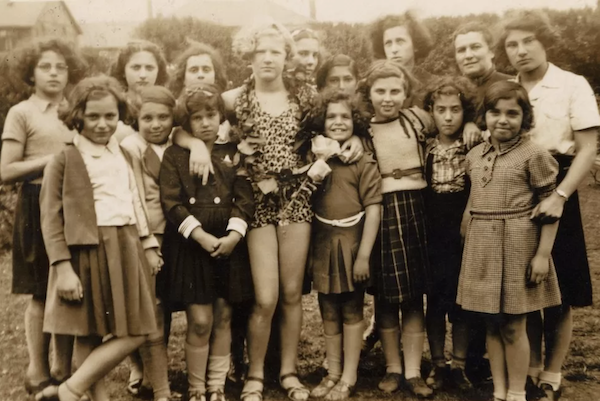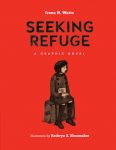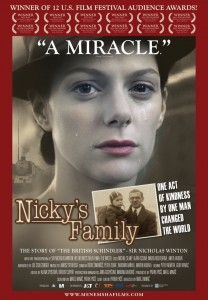More than 20 girls were rescued from Nazi persecution and brought to Tynemouth (photo from Summerfield family via BBC)
On Jan. 26, 2023, a blue plaque at a house in Tynemouth, a coastal town in northeast England near Newcastle, was unveiled. The marker recognizes the efforts of David Summerfield, the grandfather of Victoria, BC’s Henry Summerfield, to help rescue Jewish children before the Second World War.
David Summerfield’s undertaking was part of the Kindertransport, which, from late 1938, after Kristallnacht, to the declaration of war in September 1939, brought Jewish children to the United Kingdom.
“My grandfather ran a jewelry store in Newcastle. He was very well known and well thought of inside and outside of the Jewish community,” Henry Summerfield told the Independent. “He got a committee together and they raised funds and got a house in Tynemouth. In those days, they would not have boys and girls in the same house. Thus, they decided girls were more vulnerable and they would take them in.”
The house at 55 Percy Park provided lodging for 24 Jewish girls, aged 3 to 15, from Germany, Austria and Czechoslovakia. In total, nearly 10,000 children were brought into the United Kingdom during the nine months of the rescue operation.
“It was a terrible ordeal for the children because they were in a strange country and they were going to a city they had never heard of. They were not accompanied by any adults who could guide them,” said Summerfield. “A girl from Czechoslovakia was the worst off because did not speak either German or English.”
The local Jewish community in Newcastle needed people to care for the girls after they arrived, Summerfield said, and they managed to find two Jewish widows from Vienna who had fled to London: Paula Sieber, who had owned a cinema, and Alice Urbach, a well-known chef who also operated a cooking school.
Prior to the war, Urbach had written a popular cookbook, Cooking the Viennese Way, under a false name, because, as a Jew, she was not able to publish using her real name. In 2022, her granddaughter, historian Karina Urbach, published Alice’s Book: How the Nazis Stole My Grandmother’s Cookbook, which explored Alice Urbach’s story and the Nazi appropriation of her intellectual property.
“Because attempts to avert a war failed, the parents were never able to join their children,” said Summerfield. “Instead, Newcastle and the nearby area became a war zone subject to heavy bombing and out of bounds to enemy aliens, so the girls were moved across the country to a house at Windermere in England’s Lake District. There they remained under the care of the two matrons till the end of the war. They were educated in local schools.”
As reports started to come out about the death camps, the matrons tried to be strict about keeping the girls away from the cinemas, where newsreels were shown. One girl managed to sneak out, saw the news and returned to the house in hysterics. Most of the girls’ parents died during the Holocaust.
As the years passed, the girls finished their schooling and got training for various jobs. The whole enterprise was successful – the girls grew up, had careers and raised families. Some stayed in England, while others moved to Israel, the United States, Australia and New Zealand.
The BBC recently learned of the endeavour and broadcast a report about a reunion of the refugees, now elderly, and their lives. The reunion was attended by David Summerfield’s granddaughter, Judith Summerfield, and great-granddaughter, Alison Moore. There were previous reunions, in 1988 and 1999.
A six-episode BBC podcast was released earlier in the year, The Girls: The Holocaust Safe House, detailing the stories of those who lived at 55 Percy Park. The current owners of the house, who purchased the property in 2017, hadn’t known the historical significance of the address as a Kindertransport hostel.
The newly unveiled plaque at 55 Percy Park reads: “In 1939, this house was home to more than 20 girls fleeing Nazi persecution. They came here via the Kindertransport rescue effort and were cared for by the Newcastle Jewish Refugee Committee, as well as the wider community of Tyneside. Most of those housed here lost their parents during the Holocaust. The committee funded their care for over seven years.”
Below that inscription is a quote from Talmud: “Whoever destroys a soul, it is considered as if he destroyed an entire world. And whoever saves a life, it is considered as if he saved an entire world.”
A posthumous honour for David Summerfield has been proposed. His jewelry store, started in 1914, is still in operation.
Sam Margolis has written for the Globe and Mail, the National Post, UPI and MSNBC.



